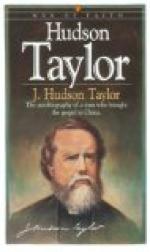“Early the next morning, Magaw made his dispositions for the expected attack. His forces, with the recent addition, amounted to nearly three thousand men. As the fort could not contain above a third of its defenders, most of them were stationed about the outworks.”
About noon, a heavy cannonade thundered along the rocky hills, and sharp volleys of musketry, proclaimed that the action was commenced.
“Washington, surrounded by several of his officers, had been an anxious spectator of the battle from the opposite side of the Hudson. Much of it was hidden from him by intervening hills and forest; but the roar of cannonry from the valley of the Harlem River, the sharp and incessant reports of rifles, and the smoke rising above the tree-tops, told him of the spirit with which the assault was received at various points, and gave him for a time hope that the defense might be successful. The action about the lines to the south lay open to him, and could be distinctly seen through a telescope; and nothing encouraged him more than the gallant style in which Cadwalader with inferior force maintained his position. When he saw him however, assailed in flank, the line broken, and his troops, overpowered by numbers, retreating to the fort, he gave up the game as lost. The worst sight of all, was to behold his men cut down and bayoneted by the Hessians while begging quarter. It is said so completely to have overcome him, that he wept with the tenderness of a child.”
“Seeing the flag go into the fort from Knyphausen’s division, and surmising it to be a summons to surrender, he wrote a note to Magaw, telling him if he could hold out until evening and the place could not be maintained, he would endeavor to bring off the garrison in the night. Capt. Gooch, of Boston, a brave and daring man, offered to be the bearer of the note. He ran down to the river, jumped into a small boat, pushed over the river, landed under the bank, ran up to the fort and delivered the message, came out, ran and jumped over the broken ground, dodging the Hessians, some of whom struck at him with their pieces and others attempted to thrust him with their bayonets; escaping through them, he got to his boat and returned to Fort Lee.”
* * *
Up and down the valley of
the Hudson the contending
armies surged like the ebbing
and flowing of the tides.
William Wait.
* * *
Washington’s message arrived too late. “The fort was so crowded by the garrison and the troops which had retreated into it, that it was difficult to move about. The enemy, too, were in possession of the little redoubts around, and could have poured in showers of shells and ricochet balls that would have made dreadful slaughter.” It was no longer possible for Magaw to get his troops to man the lines; he was compelled, therefore, to yield himself and his garrison prisoners of war. The only terms granted them were, that the men should retain their baggage and the officers their swords.




